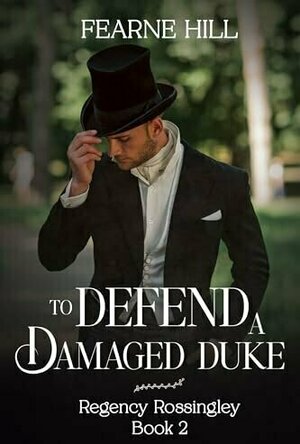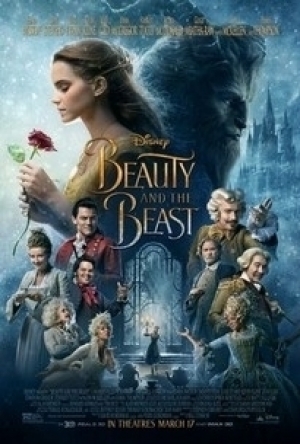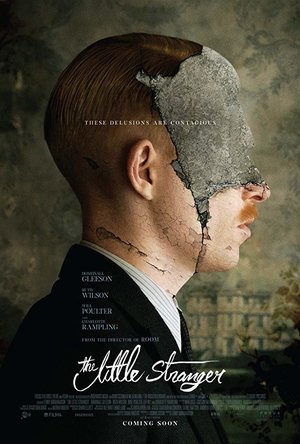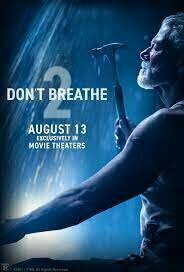
SpongeBob Game Station
Games
App
2017.10.11 BIKINI BOTTOM (HOME) UPDATE This Version includes: ▶All-new playable Home game, where...

Stepz - Step Counter
Health & Fitness and Lifestyle
App
Stepz is a convenient step counter app that leverages the clever Apple Motion Coprocessor which...

Beauty Massage - Best Skin Acupressure Points!
Health & Fitness and Medical
App
√ Make Your Skin Look Beautiful with Traditional Chinese Massage Points √ Easily find the right...
Debbiereadsbook (1664 KP) rated To Defend a Damaged Duke (Regency Rossingley #2) in Books
Jun 22, 2025
This is book 2 in the Regency Rossingley series. While I do think it came be read as a stand alone read, I think it would benefit to read book 1, To Tempt a Troubled Earl. Since Lando and Kit play a huge part here, it will give you a better picture of their relationship, and that of Kit and Tommy. Not strictly necessary, just my persosnal opinion.
Ten years ago, Benedict did something he never forgave himself for. Now, Tommy has appeared in his life and Benedict wants nothing more than to beg Tommy's forgiveness. But first, they must uncover a blackmailer, and deal with someone messing with Benedict's horses.
I refer to my review for the first book. I said "I loved the way the duke was brought down. I wasn't fully in on the plan, as to how it was going to work, but that was just my brain not really putting it altogether!" But what I think NOW is that it is just the author's writing. She likes to keep things a bit vague, and secret, and keeps you on your toes. And I really LOVED that I can come to that revelation. Benedict has a plan to deal with the horse issue, and he doesn't tell anyone. I had a thought about that, then dismissed it, but he does what I thought he would do!!
I loved Tommy and Benedict. I loved that they still loved each other, even after what happened at the molly house. After what Tommy went through, his Lordling still pushed all his buttons and then some. Even if his feelings were borderline hate for a long time.
And what I loved the most?? That I kinda thought Tommy and Benedict had 'gone all the way' for want of a better expression in their dealings as teenagers. And it turns out, that they had not. And I loved when Benedict reveals to Tommy what he does. Made me all emotional, but I'm not saying what he reveals for spoilers!
Loved how it all went down with the blackmailing/ horse things. Those ladies of the Ton are not to be messed with and they pulled a blinder of a plan off! Beatrice and Mrs de Villiers?? Loved them!
I look forward to reading book 3, especially after that snippet at the back!
Actually, what I loved the most?? That I wrote 4 stars at the top pf the page for this and it's reviewed itself into a . . .
5 full and shiny star read!
*same worded review will elsewhere
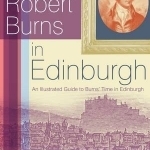
Robert Burns in Edinburgh: An Illustrated Guide to Burns' Time in Edinburgh
Jerry Brannigan, John McShane and Alexander David
Book
A reader-friendly, fully illustrated colour guide to Robert Burns' time in Edinburgh, with fresh...
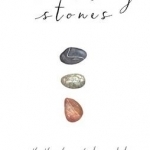
Stumbling Stones: A Path Through Grief, Love and Loss
Book
This book is a beautifully written exploration of grief and loss. Thought-provoking, often poetic,...
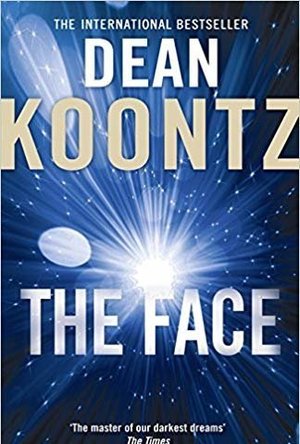
The Face
Book
Acknowledged as "America's most popular suspense novelist"("Rolling Stone" ) and as one of today's...
Gareth von Kallenbach (980 KP) rated Beauty and the Beast (2017) in Movies
Jul 12, 2019
Friends would look at me askance and ask, “The Beast? Really?”
And I’d simply reply, “Have you not seen his library?”
I also claim Belle as my favorite Disney princess. As a bookworm, Beauty and the Beast gave me a princess I could relate to. Sure, I had just graduated from high school the year before the animated film – not really the demographic Disney was catering to. But when I first watched Belle’s introductory scene, as she made her way through the village with her nose buried in a book while the townfolk sang of her “odd” behavior, I felt l the corners of my lips rise on their own, in a smile of recognition.
Sure, it also may have been because of the clever lyrics of the late Howard Ashman and the wondrous melodies of Alan Menken in that first song alone, but Belle quickly me over not only with her joy for stories and spirit of adventure, but also with her brave spirit.
Beauty and the Beast is a fairy tale told many times over and Disney’s live-action version follows the animated classic closely with some variation and additional scenes and few more songs. Like the animated film, it’s sweepingly romantic and just as enchanting. What the audience may struggle with is that Emma Watson’s Belle is not as…well, animated as the animated Belle. She brings a solemnity to the role, and as singing talent goes, while she is no Paige O’Hara, she can sing.
Luke Evans makes a menacingly handsome Gaston and his big number, with his sidekick LeFou (Josh Gad) is an entertaining high point that cements Gaston’s position as my favorite villain. Dan Stevens brought a bit more humanity to Beast, and with a heartbreaking song of his own, his despair is more keenly felt in this movie. But I have to admit, I prefer Josh Groban’s version of Beast’s solo, which you do get to hear if you sit through the credits.
Lumière the candelabra and Cogsworth the clock were brought to life with great voice work Ewan McGregor and Ian McKellen, respectively. Emma Thompson voiced Mrs. Potts perfectly. I don’t know if it was her voice, the theme song or the ballroom dance scene that provoked an overwhelming sense of nostalgia, but the captivating combination literally brought tears to my eyes. Kevin Kline, who played Belle’s father, Maurice, Stanley Tucci, and Broadway great Audra McDonald round out a solid supporting cast.
As a huge fan of the 1991 Beauty and the Beast, I didn’t believe a live-action version could improve on the beloved, timeless classic. But just like with the animated film, it was truly the songs that made the movie, and the music does it again for the live-action film, making it a memorable, magical treat for young and old alike.
Darren (1599 KP) rated The Little Stranger (2018) in Movies
Sep 2, 2019
Characters – Dr Faraday is a young doctor who takes a fondness of an outcasted family, he wants to help the injured brother, wants to save Caroline, while being left in the middle being able to help them or a potential supernatural presence in the house. Roderick is the injured war hero, he was left with a limp and burns to his face, which make him feel outcasted from the rest of the village and useless to his family, he is struggling with the mental side of everything too, leaving him to make rash decisions. Caroline is the daughter of the household, she is the one that they family has hope of seeing escape their impending poverty and becomes the ones that Faraday takes an interest in. she comes off unsure of what to make of her own future. Mrs Ayres is the mother of the house, she wants the best for her children and is still haunted by the one that she lost.
Performances – I don’t think any of the performances in this film are bad, Domhnall Gleeson does everything he can in the leading role, as does Will Poulter in his supporting role, Ruth Wilson and Charlotte Rampling don’t disappoint with what they try to bring to the film, the problem with most of this film, comes from the characters be so bland and the story not going anywhere.
Story – The story here follows a doctor getting close to a family that are seen as outcasts only to start to fall in love with one member of the family just as the strange events start to happen within the mansion. This is where the story just doesn’t get going, we are promised a horror element to this film which just never comes to life, which makes the story feel like more of a class position story. if that sounds confusing, well that doesn’t change from the story in full, because we have very little happening here and end up just shrugging our shoulders at the end, wondering if anything was actually meant to happen.
Horror/Mystery – The horror in this film does seem to be non-existent, where anything supernatural does seem to only be part of the mystery over anything else going on in the film.
Settings – The film is set mostly in the mansion in a village in the English countryside, it shows how the family can be seen as outcasts and how people can look out at these types of buildings hoping to be part of this society.
Special Effects – The effects in the film are down the practical additions to Will Poulter, they look great, everything else just seems basic.
Scene of the Movie – The dog attack.
That Moment That Annoyed Me – The aftermath of the dog attack.
Final Thoughts – This is a film that seems to hint at something big, only to end up feeling dull and uninspiring.
Overall: Just fails to deliver.
Bob Mann (459 KP) rated Don't Breathe 2 (2021) in Movies
Aug 18, 2021
Positives:
- Five years is an awfully long time to wait for a sequel! I have to admit I needed to read through my original review for "Don't Breathe" and the synopsis on IMDB before I went to see this. But, given that it is a fairly standard schlock-horror home-invasion movie, this is a nicely pieced together movie. Debut director Sayagues, who co-wrote the first film with original director Fede Alverez, moves the action along at a non-stop pace leaving you quite exhausted by the end of the (pleasantly short) 98 minutes.
- Stephen Lang nicely retreads his monster from the first movie as a besotted but anxious parent. But particularly good I thought was Madelyn Grace who plays the 11 year old Phoenix. I never once thought "there's a child actress doing a performance". Great job!
Negatives:
- It doesn't get many brownie points for originality: the blindness dice was already rolled in the original. So here we get some re-tread scenes of "the blind man being king", with red insecticide spray replacing the darkness.
- It never feels quite right that you are supposed to be cheering on Nordstrom: someone with virtually no redeeming features (other than a love for dogs).
- The original film had a decidedly icky moment with the whole baster thing. Here we have an equally icky, if ridiculous, plot-twist, taking us into a very dark place indeed. But what is supposed to be a shock-horror moment actually had me in fits of laughter, since all I could think of was a particular scene in "Monty Python and the Meaning of Life"!
Summary Thoughts on "Don't Breathe 2": We've been here so many times before that it's almost a (bloody) paint by numbers. But I have to admit that I thought this one was well done, and a cut above the norm. The first movie made $158M on a budget of just $10M. This one has a (restrained) $15M budget, and has already made that back. Good for them. The gore factor makes it not one for the illustrious Mrs Movie Man (who wisely didn't come). But for horror fans out for a nice gory little romp, this has its attractions.
And by the way, there is a 'monkey' (post-credit scene in One Mann's Movies speak) in this one. Well, Alvarez and Sayagues aren't going to dead-end their options for a "Don't Breathe 3" are they?
(For the full graphical review, please check out onemannsmovies on the web, Facebook and Tiktok. Thanks.)
